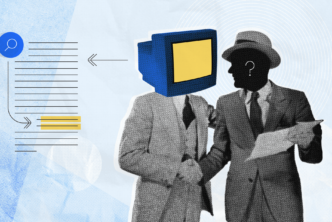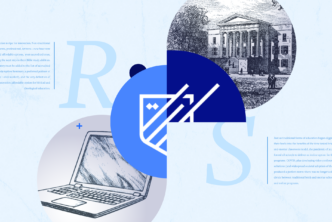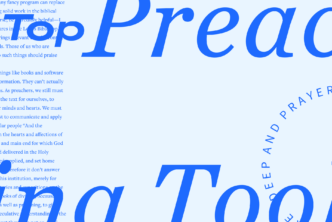Tools like the Passage Guide, Exegetical Guide, and Bible Word Study Guide search a huge digital library and return neatly organized reports that kick-start your Bible study. From nothing more than a verse, or the name of a Bible story, or a single word, these reports generate both visual and textual overviews that link deeply into your Bible reference library.
These reports eliminate obstacles to Bible study because they are more than just simple search tools. They not only save time, they answer the question “Where do I start?” Each report is designed to facilitate a specific step in Bible study, and it has embedded in it specialized knowledge about the process and books involved.
Logos Bible Software also features specialized tools like a Bible Reading Scheduler and a Prayer List manager. Like the automated reports, these tools are time savers that eliminate paper handling and help users get into the Word.
The sheer bulk and weight of paper Bible reference books is another paper handling obstacle. It can keep people from following a cross reference, checking a source, or digging a little deeper on a topic.
I have visited many pastors and professors in their offices, and the one thing found in every office is a lot of books. It is fascinating to see the breadth and depth of many of these collections, often neatly organized and cataloged. But it is also interesting to see that within nearly all of these large collections there is a much smaller collection: “books I use all the time”. This handful of books can usually be found on the shelf directly behind the chair, just below sitting eye-height. (If those books aren’t already strewn across the desk.)
Because no matter the breadth or depth of interest or scholarship, very few people have the time to regularly find and consult even the hand-picked books in their personal library. And even less time to visit a bookstore or physical library for the obscure titles they find referenced in every footnote and bibliography they encounter during their study, no matter how useful they might be.
Electronic resources are easier to use. And when resources are easier to use, they get used more often. We want to free our users to consult their whole library regularly – not just the books they can reach from their chair.
We also want to make available as much source material as possible. Everyone may not want to check textual readings in the papyri, consult Josephus in the Greek, or search for parallels in the Ugaritic literature. But having access to the early sources (in the original languages and scripts, as well as in transliteration and translation) is necessary in order to do so. Ready access to these sources is useful for less scholarly users as well. It allows them to check citations, to read and explore on their own, and to gain confidence in the integrity of our historical understanding.
Logos Bible Software offers a massive digital library. But we aren’t adding titles to win some book count competition. We simply want to make the books in your library easier to use. We want to make it easier for everyone to consult source material. And in doing so, we eliminate even more obstacles to better, deeper Bible study.




